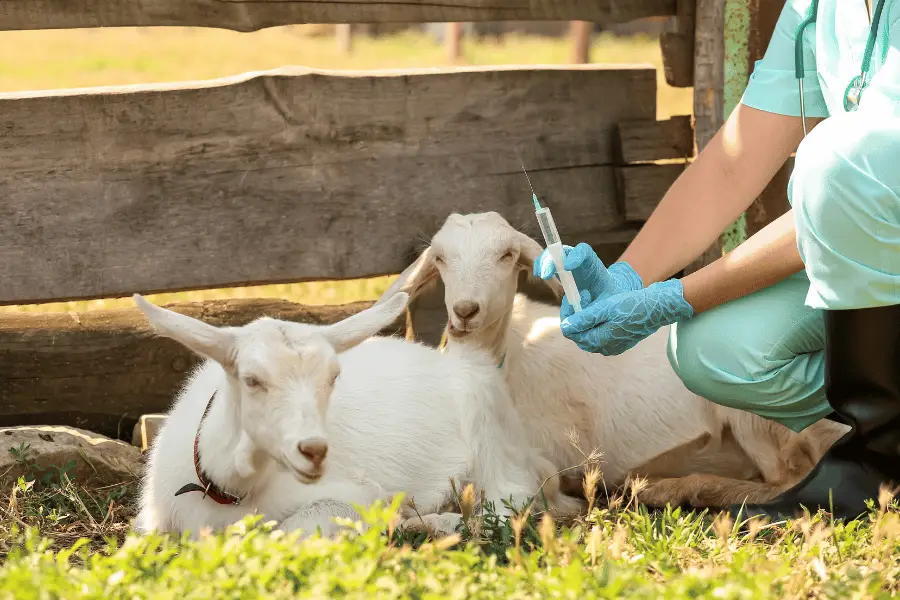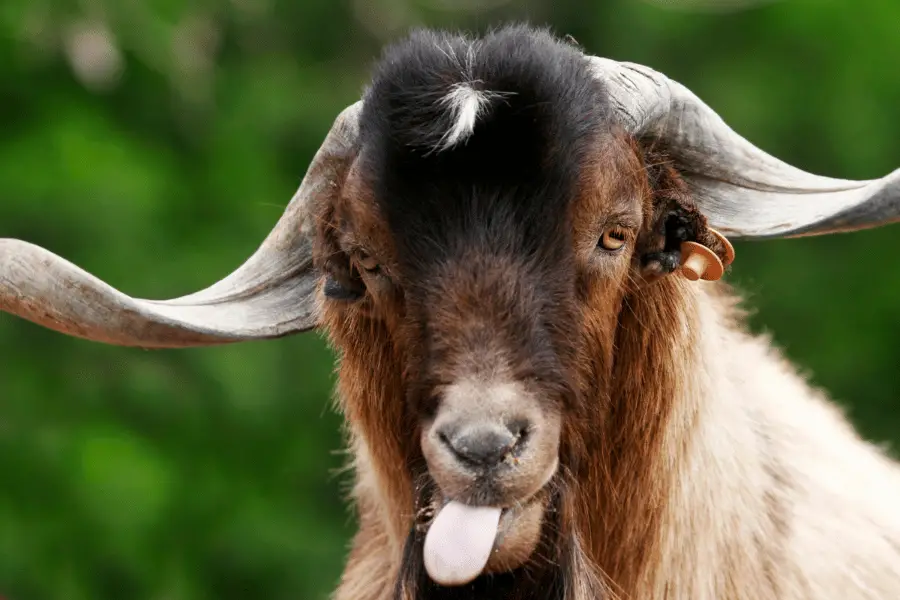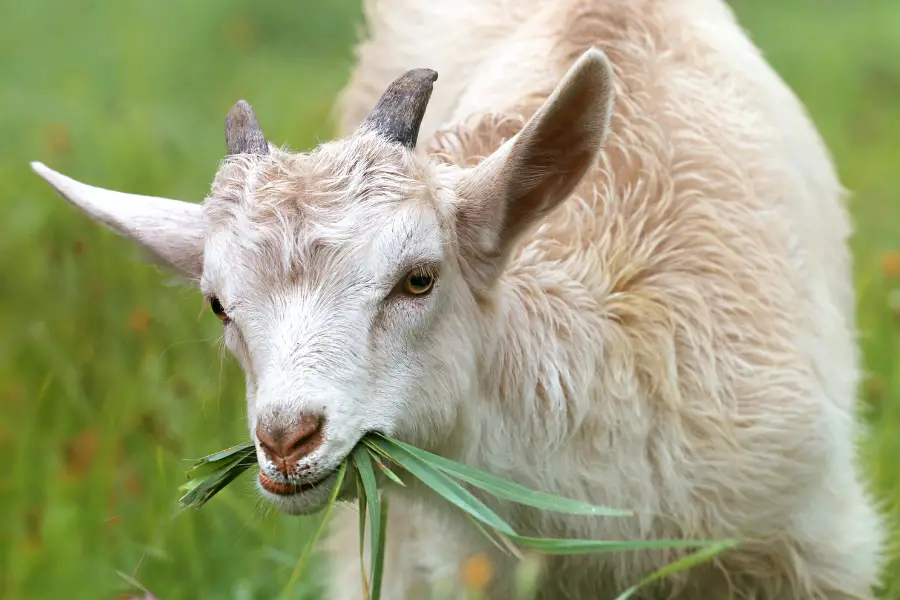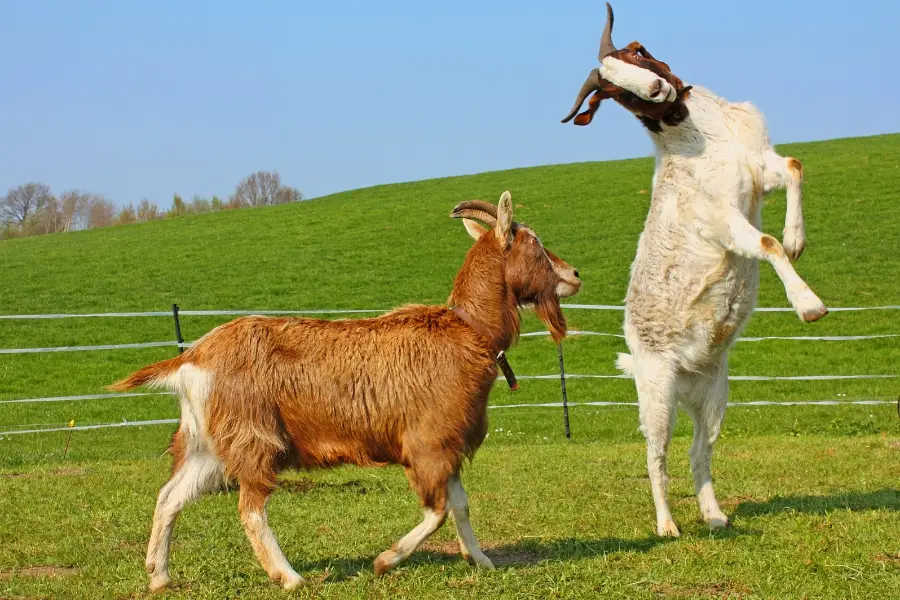
When your goat is in pain, you certainly want to do what you can to provide it relief. There are many reasons your goat could be feeling pain. It may be injured, experiencing bloat, or suffering from mites, lice, or other parasites. There are a variety of pain medicines designated for animals, however, not all of these drugs are approved pain meds for goats. Don’t give drugs made for humans to your goats. Consult with your veterinarian before administering pain relief medicine to your goat.
Table of contents
- Best Pain Medication for Goats
- What to Give a Goat for Pain?
- Alushield
- Banamine (FluMeglumine) – Not Approved for Goats. Extra Label Use Only
- Dexamethasone – Not Approved for Goats. Extra Label Use Only
- Asprin – Not Approved for Goats. Extra Label Use Only
- Ibuprofen – NOT Approved for Goats
- Ketoprofen – Not Approved for Goats
- Phenylbutazone – Do NOT Use in Lactating Animals
- Metamizole sodium (Dipyrone) – Banned in the United States
- Video: Basic Wound Care from Linessa Farms, LLC
- Table of Goat Common Medications and Withdrawal Times
- Prohibited Medications
Best Pain Medication for Goats
Many medications are approved for other animals, but not for goats. The use of these drugs on goats constitutes an off-label usage, which means that these drugs can only be used under the supervision of a licensed veterinarian.
In addition, it is important that you adhere to withdrawal times for meat and milk in any animal that will be used for human food.
Always consult with your veterinarian before beginning any medication regimen.
What to Give a Goat for Pain?
Below are a list of common medications that are used by goat farmers for pain relief for goats.
We also make note of some common medicines that you may have heard of, but that you should not give to your goats.
Alushield
“Alushield” is a brand name for an aluminum aerosol bandage for animals. Aluminum aerosol bandages are topical sprays that contain a protective barrier to help wounds heal. They are commonly used in veterinary medicine to protect wounds from moisture and to provide a physical barrier against bacteria and other contaminants.
Alushield is typically applied as a spray, which makes it quick and easy to apply. The aluminum component of the bandage helps to form a barrier that protects the wound and promotes healing. Some products like Alushield also contain other ingredients that can provide additional benefits, such as pain relief, antiseptic properties, and increased blood flow to the wound site.
It’s important to follow the instructions provided by the manufacturer when using Alushield or any other type of veterinary topical spray. If you have any questions about the use of Alushield or the care of an animal with a wound, you should consult a veterinarian

Banamine (FluMeglumine) – Not Approved for Goats. Extra Label Use Only
Banamine is a brand name for the drug flunixin meglumine, which is used in veterinary medicine. Flunixin meglumine is a non-steroidal anti-inflammatory drug (NSAID) that is commonly used to reduce fever, inflammation, and pain in animals. It is used to treat a variety of conditions, including musculoskeletal disorders, colic, respiratory disease, and certain types of wounds and infections.
Banamine for Goats
Although banamine is a common over the counter pain med for animals, Flunixin meglumine is not FDA approved by goats. It is an extra-label use. As a result, as a goat pain medicine, it can only be used under the supervision of a veterinarian.
Banamine is most commonly used in horses, cattle, and swine, although it can be used in other species as well. It is typically administered as an injection, although some formulations are available for oral administration. When you administer the drug to a goat, the injection must be under the skin, and NOT into the muscle. It is important that you work with your veterinarian to administer the medicine properly.
Like all NSAIDs, Banamine can have side effects in goats, so it should be used with caution. It is important to follow the instructions provided by your veterinarian when using Banamine. You must be aware of the potential side effects, including gastrointestinal upset, kidney and liver damage, and changes in the way that the blood clots. Before you use and during the use of Banamine in your animal, you should consult with your veterinarian.

Dexamethasone – Not Approved for Goats. Extra Label Use Only
Dexamethasone (Azium®) is a synthetic glucocorticoid hormone (corticosteroid) that is used in veterinary medicine as well as in human medicine. It is used to treat a wide range of conditions, including allergies, inflammation, and autoimmune disorders.
Dexamethasone is not FDA approved for use on goats. It is an extra-label use. As a result, it can only be used under the supervision of a veterinarian.
In veterinary medicine, dexamethasone is commonly used to treat conditions such as allergies, skin conditions, joint and musculoskeletal disorders, and some types of cancer. It works by reducing inflammation and suppressing the immune system, which can help to relieve symptoms and improve overall well-being.
Dexamethasone is usually administered orally, but it can also be given as an injection or topical application. The dosage and frequency of administration will depend on the specific condition being treated and the individual animal. It is important to follow the instructions provided by your veterinarian when using dexamethasone, and to be aware of the potential side effects, including increased thirst and urination, weight gain, and an increased risk of infection (immunosuppression).
Prior to using dexamethasone in your animal, you should consult your veterinarian. Your veterinarian can help you determine if this drug is appropriate for your animal and provide guidance on its safe and effective use.

Asprin – Not Approved for Goats. Extra Label Use Only
Aspirin (acetylsalicylic acid) can be used in goats for certain medical conditions, but it should only be used under the guidance of a veterinarian. The use of aspirin in goats is considered off-label, as it is not approved for use in this species by the U.S. Food and Drug Administration (FDA).
Goats are more sensitive to aspirin than other species, and doses must be carefully calculated to avoid toxic effects. It is important to follow the instructions provided by your veterinarian when administering aspirin to goats, as overdose can cause serious side effects, including stomach ulcers, kidney damage, and even death.
Before giving aspirin to a goat, it is important to consider alternative treatments and to discuss the potential risks and benefits with a veterinarian. Your veterinarian can help you determine if aspirin is appropriate for your goat, and provide guidance on the safe and effective use of this medication. It is important to never give human medications to animals without the guidance of a veterinarian.
Ibuprofen – NOT Approved for Goats
No, ibuprofen should not be given to goats. Ibuprofen is a non-steroidal anti-inflammatory drug (NSAID) that is commonly used in humans, but it is toxic to goats and other livestock. Ibuprofen is NOT listed on the Table of Common Goat Medicines and Withdrawal Times, See below.
Goats are much more sensitive to the effects of NSAIDs than other species, and even small doses of ibuprofen can cause serious side effects, including gastrointestinal upset, kidney and liver damage, and death. There is no safe or effective dose of ibuprofen for goats, and its use is not recommended.
If you have concerns about pain or inflammation in a goat, it is important to consult a veterinarian. Your veterinarian can help you determine the best course of treatment for your animal, and recommend safe and effective alternatives to ibuprofen. It is important to never give human medications to animals without the guidance of a veterinarian.

Ketoprofen – Not Approved for Goats
Ketoprofen is a non-steroidal anti-inflammatory drug (NSAID) that is used in veterinary medicine to relieve pain and reduce inflammation. It is commonly used in dogs, cats, and horses, although it can be used in other species as well.
Ketoprofen works by blocking the production of prostaglandins, which are chemicals that cause pain and inflammation in the body. It is typically administered orally, although some formulations are available for topical and injectable administration. The dosage and frequency of administration will depend on the specific condition being treated and the individual animal.
Ketorprofen is NOT listed on the Table of Common Goat Medicines and Withdrawal Times, See below. It is important to follow the instructions provided by your veterinarian as to whether you should use ketoprofen, and to be aware of the potential side effects, including gastrointestinal upset, kidney and liver damage, and changes in the way that the blood clots.
Before beginning any medicine regimen on your goat, you should consult with your veterinarian. Your veterinarian can help you determine if this drug is appropriate for your animal and provide guidance on its safe and effective use.
Phenylbutazone – Do NOT Use in Lactating Animals
The use of Phenylbutazone (Bute) is prohibited in lactating animals. For other goats, the use is considered extra-label, and a veterinarian must be consulted prior to use.
Nonsteroidal anti-inflammatory drugs (NSAIDs) such as phenylbutazone are used to treat pain, inflammation, fever, and other symptoms in animals. It is used to treat goats in veterinary medicine, but also in the treatment of other animals such as horses and cattle.
Phenylbutazone blocks the body’s production of enzymes that cause pain and inflammation. It is used in the treatment of arthritis, lameness, fever, and other conditions in goats.
However, it is important to note that the use of phenylbutazone in goats and other animals should always be under the guidance of a licensed veterinarian. This is because there can be potential side effects associated with the use of this medication, and the dosage and administration of the drug need to be carefully monitored to ensure the safety and well-being of the animal.
Some potential side effects of phenylbutazone in goats can include gastrointestinal upset, such as diarrhea and colic, as well as kidney and liver damage. Additionally, phenylbutazone can interact with other medications that the goat may be taking, so it is important to inform the veterinarian of all medications the animal is currently taking before administering phenylbutazone.
The use of phenylbutazone to treat pain and inflammation in goats is an effective treatment. However, it should be done under the supervision of a licensed veterinarian to ensure safety and well-being.
Metamizole sodium (Dipyrone) – Banned in the United States
The use of metamizole sodium in animals is common in Latin America and Europe, but it is banned in the United States.
Metamizole sodium, also known as dipyrone, is a non-steroidal anti-inflammatory drug (NSAID) that is used to relieve pain and reduce fever. In some countries, it is used in veterinary medicine for the treatment of pain and inflammation in animals. However, its use in veterinary medicine is controversial due to its association with serious side effects, including agranulocytosis (a condition in which the body produces too few white blood cells) and other blood disorders.
If you have concerns about pain or inflammation in an animal, it is important to consult a veterinarian. Your veterinarian can help you determine the best course of treatment for your animal, and recommend safe and effective alternatives to metamizole sodium.
Video: Basic Wound Care from Linessa Farms, LLC
Treating a wound can be the first step in treating your goat for pain. In this video produced by Linessa Farms in the town of Rensselaer in Northwest Indiana, Goat Farmer Tim discusses basic wound care of goats in detail. Three types of wounds are identified. Skip to 4:58 for specific information about AluShield.
Table of Goat Common Medications and Withdrawal Times
Whenever you treat your goat with medicine, you must adhere to the withdrawal times for milk and meat. Many goat medicines are off label uses, and thus require that you work with a trusted veterinarian before administering the medicine.
As a result of the work of Dr. Seyedmehdi Mobini, of the Goergia Small Ruminant Research and Extension Center of Fort Valley State University in Fort Valley Georgia, an excellent document exists which you can link to below. It provides the minimum meat and milk withdrawal times required for different medicines. Always consult with your trusted veterinarian before beginning any treatment.
Click to open: Medications Commonly Used in Goats and Approximate Withdrawal Times
Prohibited Medications
Always consult with your veterinarian before beginning any medication regimen.
The following medications are prohibited from extra label use in any food animal:
- Fluoroquinolones/Enrofloxacin (Baytril)
- Phenylbutazone (Dairy)
The following medications are prohibited for use in any animal that will be used for human food:
- Dipyrone
- Clenbuterol
- Nitrofurazones
- Nitrofurans (Furacin)
- Nitroimidazole (Metronidazole, Dimetridazole, Ipronidazole)
- Diethylstilbesterol
- Glycopeptides (Vancomycin)
- Chloramphenicol
For additional information on prohibited and restricted drugs, refer to FARAD (Food Animal Reside Avoidance Databank)
Always consult with your veterinarian before beginning any medication regimen.





5 responses to “Pain Relief for Goats”
What is ORAL dose of Tylan 50 for 20lb doeling?
ORAL Dosage of Tylan 50 for pneumonia in 15lb doeling?
what would you give to a 16 year old male alpine goat with chronic arthritis ? It is painful for him to walk. I can’t keep him on Benamine I know. Thank you
can you give Banamine to a nursing doe?
My miniature goat was attacked by dogs. He has several punchers in his back leg. I’ve been putting antibiotic cream keeping wounds clean and fly free .can I give him cefdilir and if so how much